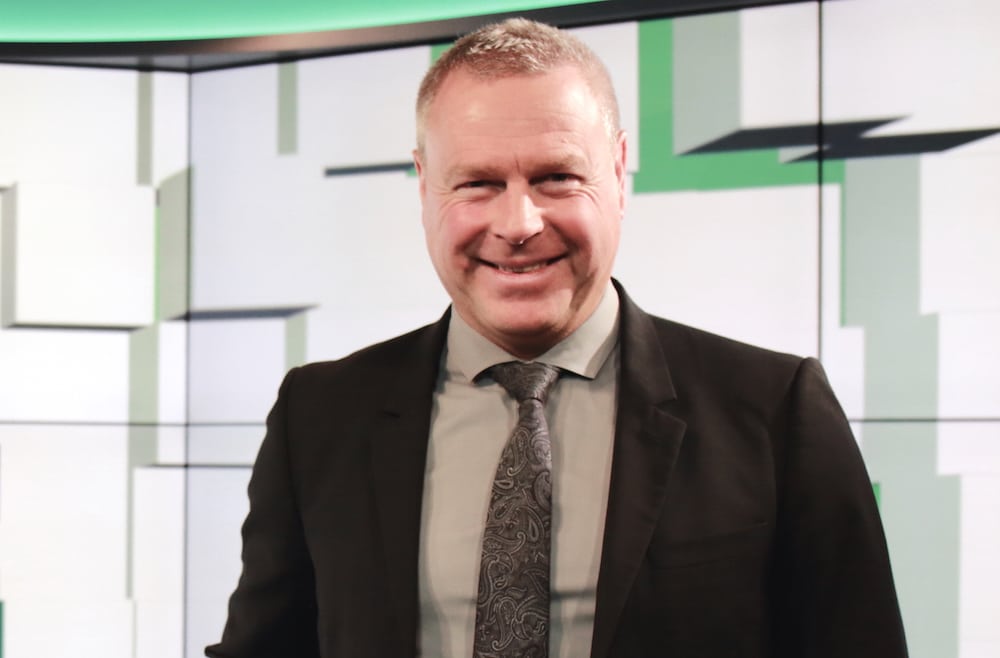Zinnovate the Disruptor
Håkan Nilsson is CEO of Zinnovate, an IT and management consultancy that has been central in catalysing the transformation of the freight and logistics sector. Here he talks of his modus operandi that has led to Zinnovate’s rapid growth, and of what the future holds for this Swedish-headquartered firm.
Dominic Hale: Zinnovate’s success is built on partnerships. Do you tend to be the proactive party when forging new working relationships, or do others beat a path to your door?
Håkan Nilsson: I spent over 20 years on the customer side, so that when I started Zinnovate I had the great fortune of picking the best of those I had worked with over the years and from across the world as my close partners. Now, four and a half years later, as things have developed, people are knocking on my door wanting to join the success rocket.
Yet, recruitment can be a time-consuming, as well as risky process if it goes wrong, so I tend towards people I have seen in action for the last 20+ years, or those who have come to me and whose track record I can easily check.
DH: What other advantages does a business model built upon partnerships, rather than a large core team, afford Zinnovate?
HN: If you have high reputational targets, it makes sense to partner with those recognised as the best at what they do and then blend in a small mix of juniors, who learn by walking hand in hand with the masters. It is a surer way of building quality.
In the more than two decades I was buying services, there were certain aspects that consistently annoyed me, which have influenced things now I am on the selling side. Perhaps the most significant of these elements was size.
A large MNC, like IBM, has everything in a huge box, but this boxed approach is inflexible and not customer-centric. Equally, the smaller outfits are very eager to please, but struggle to scale up. So, my vision for Zinnovate was that it would have the capacity to be flexible in size so that it could adjust to the requirements of its customers.
This scalable partnership model means Zinnovate is able to serve both the likes of DHL Global Forwarding, as well as modest SMEs at the other end of the spectrum. Alone, the company could not hope to be sufficiently agile, nor carry the broad library of niche expertise required to realise such a state of affairs.

DH: Are there partnerships which have not worked out?
HN: No, since all those years buying such services gave me a very good view on the market and the people, in that I can quickly establish whether someone is a doer, or simply a talker. I have two key criteria when selecting whether to work with someone. Firstly, are they someone that offers value for the customer, rather than solely revenue synergies for the partners, for this is the mindset I seek; and secondly, is the personal chemistry good, as, to put it bluntly, for a long-term partnership to be effective, it is essential for the partners to like each other. These two factors have led to 100% success to date.
Thereafter, once we have a winning team, it attracts other high quality additions to the team, who raise their own bar to engage with this culture of excellence. My experience of M&A leads me to believe that if you establish a winning culture, it is relatively easy to maintain and add to, but that the merging of two companies in hope of solving a problem rarely proves to be a winning strategy.
DH: Zinnovate is pioneering a revolution across transport, freight and logistics. Is it the mission rather than a specific growth plan that quantifies success for you?
HN: Exactly. Revenue and profit will come if you get the other elements right. Most companies have three key stakeholders: shareholders, customers and employees. Private equity may talk a lot of shareholder value and everyone speaks of the customer coming first, but for me it is about your team. If they are passionate about what they do, they will deliver significant customer experience, revenue and profits will go up and shareholder value will follow. That is the sequence: employee, customer, shareholder.
The phrase ‘Return on Competence’ encapsulates the Zinnovate approach. It is our key and guiding light, whereby our team members leverage their competence to get a return on it. That return is different for every individual and is not solely monetary, rather, it is about delivering value to the customer.
Many consultants equate value with time spent with the customer. However, I want the customer to become independent from our consultant as quickly as possible. The route to this is to maximise the return on the consultant’s competence by drawing on their relevant expertise to the fullest possible extent.
DH: How do you ensure that staying lean and not being in thrall to shareholders, VCs or private equity does not limit your growth?
HN: In the past, I worked in firms that were state-owned, stock-owned, family-owned and private-equity owned, so really appreciate the flexibility and authority provided me through being 100% owner of Zinnovate’s shares. It means I have no one telling me which way to go on the back of something they read in a management book 30 years ago.
So much of the success of a project is down to how you start it, whereby it needs to be clear how the consultants are going to be used. So, we explain to our clients from the outset that we are here to help them build their strength and that the faster they can get independent of us, the better. Strategy and direction must be set from day one, otherwise projects assume a life of their own and all of a sudden, clients are carrying a huge number of consultants.

DH: Does Zinnovate’s business model apply equally to SMEs and MNCs?
HN: Yes, but there is certainly a correlation between size and time spent to realise success, for MNCs have a political element that is not linear, but exponential. That said, my C-level background with top ten logistics firms means that with bigger firms, I know how to avoid getting consumed by company politics and can instead concentrate on creating value.
Zinnovate is narrower than its competitors, in that we are not engaged in numerous industries. However, we are broader in that, as well as embracing cutting edge technology, we also place a high emphasis on the importance of neuroscience, around which there have been fantastic developments recently. Unlike many companies that are stuck with personality tests from 60 or 70 years ago, we look to understand the interdependence between human behaviour and technology and apply this learning in all that we do. In helping to pioneer such an approach, we can be quite disruptive and deliver value that is very distinct from the competition.
My experience of driving global transformation projects on the customer side is that unless you get the organisation right, as well as the system and the process, the project is going to fail. The soft user element is what will make or break it, so that it is astonishing so many organisations do not allocate much focus to it as part of a holistic approach.
DH: Does a more collaborative work effort prevail in Sweden?
HN: Swedes are rational. If I show them the route to 3% improvement, they go for it, while in other locations it can be much more emotional, where they want to know my credentials.
So, you need to first understand your counterpart and their motivations before you can make yourself understood. Sometimes, you have to speak metaphorically, or in anecdotes when talking of tricky subjects, but once you are understood, you can start to effect change.
A global transformation project never meets with success from push, but from pull. If you’re aligning with someone and can make them aware of the benefits of your proposition, then they’ll be pulling to get it. However, if someone believes you are going to destroy what they have built up, you can push as hard as you like, but you won’t get the result you’re after. “Do unto others what they want” is my motto.
DH: What next for Zinnovate in the short term?
HN: We will continue to grow our competence network and the value we deliver to customers, not just in Europe, where we are strong, but also in America and Asia. As part of this, we will continue to direct our energies towards the three technologies of blockchain, AI and robotic process automation, which we believe will come to mark the landscape governing the logistics and finance industry and where we believe Zinnovate can provide outstanding leadership.

